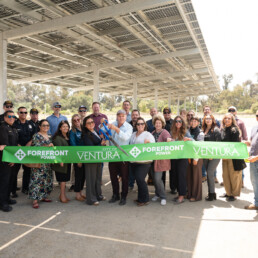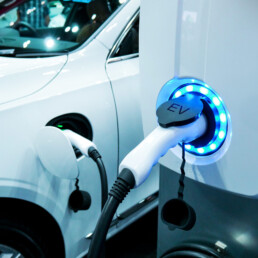The Maine legislature passed new legislation last summer that expanded an energy policy called “Net Energy Billing.” This expansion is good news, especially for medium and large-sized municipalities and businesses looking to save money on electricity costs. So, what is Net Energy Billing, and what does it mean for your organization?
In the simplest terms, NEB is a program that allows Maine utility customers to offset their electric bill by using the output from renewable energy generators. The generator may be located on or off-site. Each month, the utility will provide participating customers with a dollar credit on their electricity bill. The credit value is equal to the amount of energy (kWh) produced by the generator multiplied by the Net Energy Tariff Rate set by the commission each January.
What Changed?
The “Act to Promote Solar Energy Projects and Distributed Generation Resources in Maine” made substantial additions to Maine’s NEB program including:
- Maine Law formerly limited the size of eligible NEB facilities to 660 kilowatts (KW). Utility customers may now participate in facilities up to 5 megawatts (MW) in size, increasing customer savings.
- The State targets 375 MW of renewable energy by July 1, 2024, setting aside 125 MW for commercial and institutional customers.
- Participating customers will receive bill credits equal to the standard offer rate for supply and 75% of the T&D rate for the applicable customer class.
The act is an across the board endeavor to support solar in the State of Maine.
Solutions for Net Energy Billing
On-Site Solar
- Produce renewable energy at your facilities
- Visibility and Brand Reputation – show your commitment to sustainability
- Save on energy expenses starting in Year 1
Off-Site Solar
- Take part in a remotely located solar array
- Beneficial for facilities that lack the on-site solar capability
- Reduce OPEX as soon as the solar is up and running
Shared Distributed Generation, or “Community Solar”
- Take part in an off-site shared solar resource
- Provides benefits to the local community
- Save money!
The Easiest Option: A Power Purchase Agreement
Solar Power Purchase Agreements, commonly known as PPAs, are among the most convenient methods of benefitting from solar systems. In a PPA, a customer enters into a financial agreement with a project developer. The developer provides the design, permitting, financing, and installation of either an on-site or off-site solar project at no upfront cost to the customer. Customers benefit from the receipt of clean, renewable energy without capital outlay or the complexity of ownership, such as operations and maintenance.
The developer earns income by selling the energy (kWh) generated by the system to the customer at a fixed rate. In Maine, this rate is less than the Net Energy Tariff Rate. The customer saves money because the PPA rate is less than the dollar credit the utility applies to the bill. Then, the developer recovers its costs through this PPA revenue, plus tax credits and other system incentives.
PPAs typically last for 20 years. The developer is responsible for the operation and maintenance of the system for the duration of the PPA term. At the end of the PPA contract term, a customer may be able to extend the agreement, have the developer remove the system, or purchase the solar energy project.
Evaluate for Your Facility
ForeFront Power has a team of solar energy professionals ready to help you evaluate on-site and off-site options that save money and meet your sustainability goals. More good news? Our site evaluation and a customized proposal is no cost to you!
To learn more about how your organization can save with a PPA, contact us using the link below.
Interested in learning more?
We would love to discuss how our solutions might be a fit for your organization. Contact one of our solar, storage, or e-mobility experts today:








